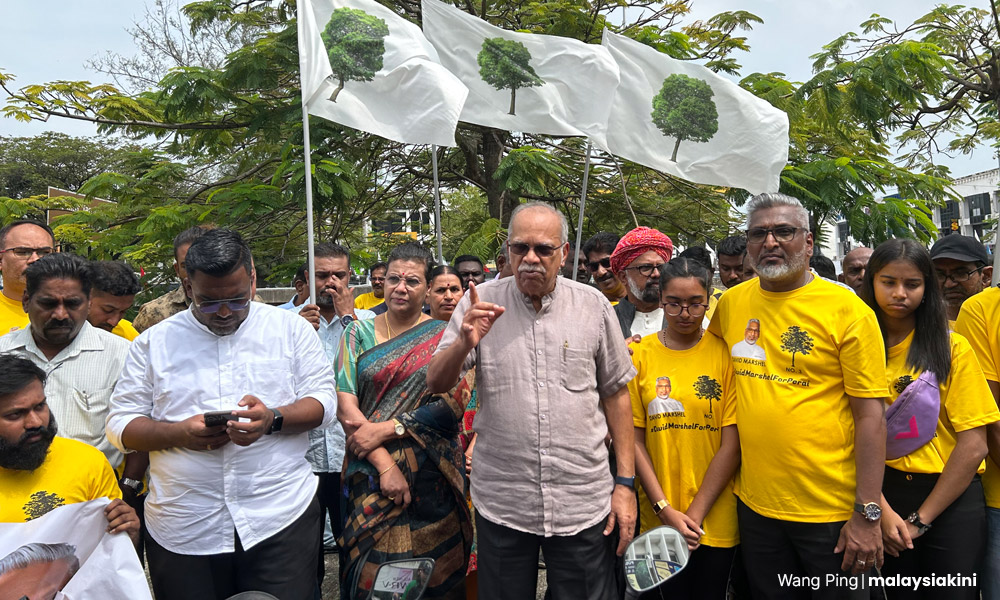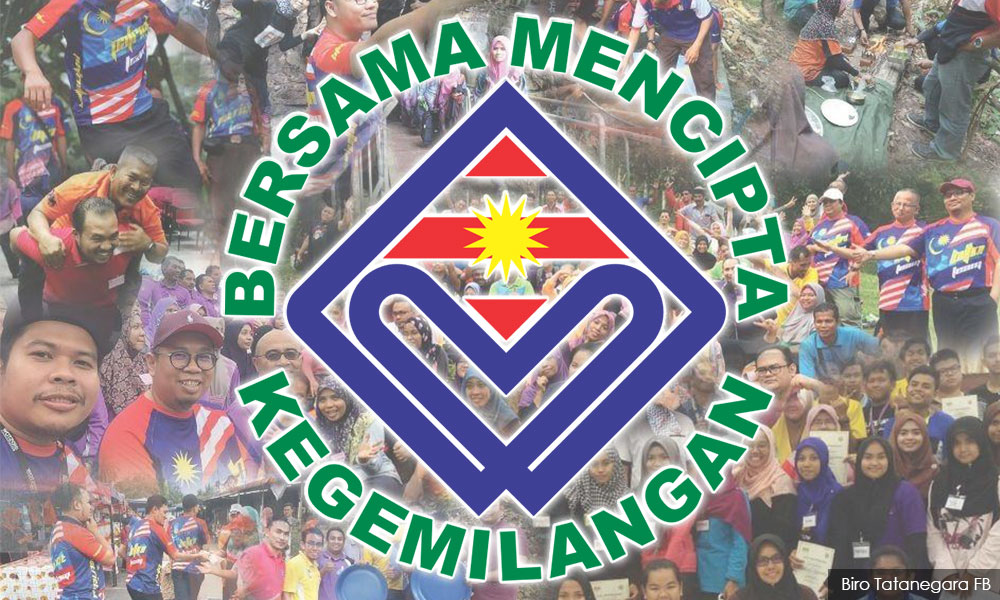There has been a lot of media hype about the Indian politicians who have been sidelined or who quit their parties, but almost no one has mentioned the community they represent.
P Ramasamy, the caretaker Penang deputy chief minister who was dropped from the DAP line-up for the state election, said that the Indian community was upset with the decision made by the party. He has since resigned from the party.
Meanwhile, DAP secretary-general, Anthony Loke, painted Ramasamy as an “insincere” opportunist who used the party for his personal gain.
The reasons for Ramasamy’s resignation go deeper than just being junked, but did both he and Loke have to wash their dirty linen in public, with only hours to spare before the state election?
Exposing private matters to the rakyat reminds us of another party, PKR, which used to air its dirty laundry in public, giving us an insight into the unsavoury characters and the many power struggles within the party.

Nevertheless, soon after Ramasamy’s departure, DAP assemblyperson, Kamache Doray Rajoo, tendered her resignation and said, “…there’s no voice for Indian leaders in DAP today…”
Should politicians of a particular race and religion only, represent their specific community? What about the best man (or woman) for the job?
Many people wrongly assume that the marginalisation of the Indians happened during former prime minister, Dr Mahathir Mohamad’s era. Actually, marginalisation occurred during British rule.
The Malays benefited from colonial patronage. The Chinese exploited their business and social networks, whilst the Indians were merely seen as a source of cheap labour in plantations and construction sites.
Then came the race riots of 1969 and the ensuing bumiputera politics placed Indians at a disadvantage both in education and work opportunities.
In 1971, the New Economic Policy (NEP) was formulated to correct the Malay imbalance in the economy, British-owned corporations were taken over by government-linked-companies (GLC) like Pernas and Permodalan Nasional Berhad (PNB)
Later on, in the 1980s, many roads did lead to Mahathir’s doorstep.
Keen to industrialise Malaysia, and buoyed by affirmative action policies, the bumiputera agenda and the National Civics Bureau (BTN), he failed to make any provision for the Indians.

So, when rubber plantations were converted into housing estates and golf courses, many displaced estate workers drifted to urban areas to form Indian ghettos which became hot-beds of crime.
Decades later, the Indian community still bore the consequences of the displacement. Despite the failure of the NEP, with handouts making the Malays less competitive, local university places and scholarships were still awarded under a racial quota system. How fair is that?
In 2011, the then-MIC deputy president, Dr S Subramaniam, claimed that 45 percent of the country's crimes involved Indians and they were ashamed of their community as they were looked down on by the other races.
It was not just the high crime rate amongst Indians that needed a solution, because many Indians have no birth certificates or identity cards, and were stateless.
Many Tamil schools were in a deplorable state, sited on illegal land and lacked funding.
Several Hindu temples were also sited on land whose owners did not have a land title. This was the allegation that was made when the caretaker Kedah Menteri Besar Muhammad Sanusi Mohd Nor, demolished several old Hindu temples, which had significant historical attachment and cultural identity.
When reading the newspapers, one cannot escape the observation that many Indians died whilst under police custody.
Performing poorly due to marginalisation
There would have been reports to say the victims died a sudden death; but no one believes that lie any more. So, where is the political will to resolve this disgraceful occurrence?
Today, the Indian community has progressed from mainly plantation workers to one consisting of entrepreneurs, intellectuals and professionals who form the bulk of the country’s top lawyers and doctors.
Conversely, the other end of the social spectrum, comprises Indians who lack confidence and are failures. They are the ones who need our help.
However, the Indian “problem” is exacerbated because of the lack of interaction between the super-elite Indians, the well-to-do Indian middle class and the Indian working underclass.
The marginalisation of working-class Indians is reflected in their poor performance in business, equity ownership and employment in professional sectors and the civil service.
Sadly, our race relations still paint an unflattering, stereotypical image of Indians in Malaysia, in much the same way people generalise with comments like “Malays are lazy, or Chinese are greedy”.
Indians are continually let down by our politicians, who use them as a “political football”, for their own means and to fulfil their own agendas.
Hence, many Indians are in a bind and have resigned themselves to their plight. Discontent continues to simmer within the community.
Malaysia cannot afford to alienate its Indians.
If we want to be rid of race-based parties, then when will politicians learn how to take care of their diverse electorate?
It’s all very well to say, “Anak Melayu, anak Cina, anak India, anak Kadazan, anak Iban, semua anak saya” (all Malaysians are my children regardless of race) but the slogan means nothing when quotas (10) remain.
Whilst we do not expect the abolition of quotas to happen overnight, most of us would like to know when Prime Minister Anwar Ibrahim, will start the dialogue to dismantle the quota system.
Issues affecting the Indian community are not just an Indian problem. It is a Malaysian problem (11). What happens to our fellow Indians, will affect both the Malays and Chinese. - Mkini
MARIAM MOKHTAR is a defender of the truth, the admiral-general of the Green Bean Army, and the president of the Perak Liberation Organisation (PLO). Blog, Twitter.
The views expressed here are those of the author/contributor and do not necessarily represent the views of MMKtT.




No comments:
Post a Comment
Note: Only a member of this blog may post a comment.